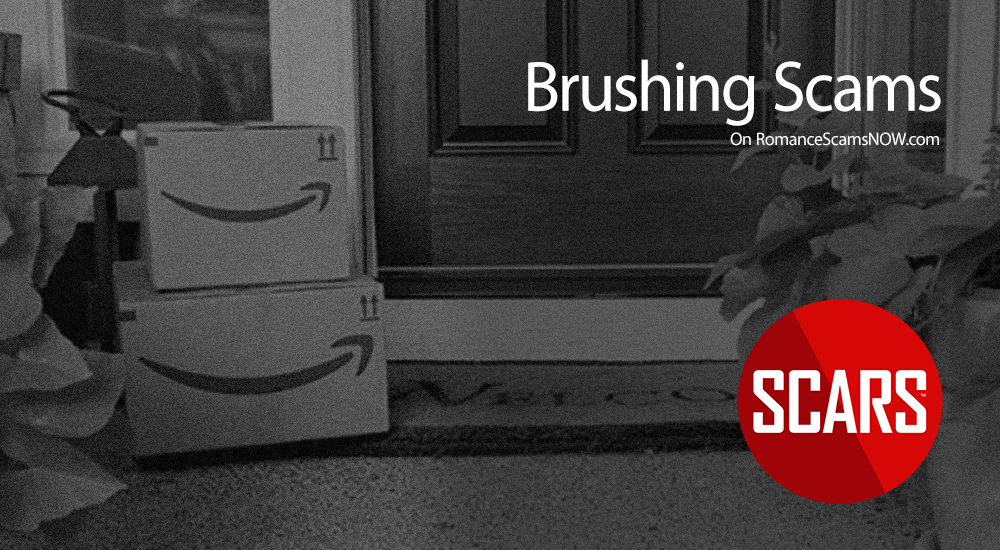Unordered Product Parcel Scams
Free boxloads of merchandise from Amazon or other companies, right on your doorstep! What could possibly be bad about getting the Santa treatment all year long? Plenty!
What could be better than opening the mailbox or the front door and finding an unexpected package? We all love surprises and gifts, but when these seemingly harmless free items come from a company or retailer, they may come with a higher cost than you realize. Oftentimes, this kind of unsolicited merchandise is part of a larger brushing scam, which is illegal in the U.S. and many other countries.
This scam is called brushing, and it has been popping up all over the U.S. & Canada. Suddenly, boxes of unordered (by the recipient) merchandise from Amazon begin arriving. There is no return address, or sometimes it just appears to come from Amazon or another retailer, and the receiver has no idea who ordered the items. The items are varied. For example, in one case a humidifier, a hand warmer, a flashlight, a Bluetooth speaker and a computer vacuum cleaner arrived unordered. Often, the items received are lightweight and inexpensive to ship, such as ping pong balls, face masks or seeds from China.
Why would such merchandise be sent to you if you didn’t request it?
- The companies, usually foreign, third-party sellers that are sending the items are simply using your address that they discovered online.
- Their intention is to make it appear as though you wrote a glowing online review of their merchandise, and that you are a verified buyer of that merchandise.
- They then post a fake, positive review to improve their products’ ratings, which means more sales for them.
- The payoff is highly profitable from their perspective.
This Is How It Works
A person receives packages or parcels containing various sorts of items that were not ordered or requested by the recipient. While the package may be addressed to the recipient, there is not a return address, or the return address could be that of a retailer. The sender of the item(s) is usually an international, third-party seller who has found the recipient’s address online. The intention is to give the impression that the recipient is a verified buyer who has written positive online reviews of the merchandise, meaning: they write a fake review in your name. These fake reviews help to fraudulently boost or inflate the products’ ratings and sales numbers, which they hope results in an increase of actual sales in the long run. Since the merchandise is usually cheap and low-cost to ship, the scammers perceive this as a profitable pay-off.
This Is Why It’s Bad
While it may appear to be a victimless crime—you did after all get some free stuff—the reality is that your personal information may be compromised. Often scammers obtain personal information through nefarious means and with ill intentions, and use it for a number of scams and other illicit activities in the future.
The fact that someone was able to have the items sent to you as if you purchased them indicates that they probably have some of your personal information such as your name, address, and possibly, your phone number. Once the information is out there on the internet, it could be used for numerous crooked enterprises.
Your fake review may prompt people to purchase worthless stuff.
In other instances, bad actors are using a person’s address and account information to receive merchandise and then steal it from the home before the resident is able to intercept it.
The fake online review angle is only one way they benefit. By using the brushing scam, they also are increasing their sales numbers. After all, they aren’t really purchasing the items, since the payment goes right back to them. Increased sales numbers, even though padded with fake purchases, look good for the company and help lead to more sales.
Porch Pirates
Then there is the “porch pirate” angle. There are instances where thieves use other people’s mailing addresses and accounts, then watch for the delivery of the package so they can steal it from the door before the resident gets it.
This Is What To Do
Follow the tips below to keep your personal information safe and be aware of what to do in the event you receive unsolicited merchandise.
- Don’t pay for the merchandise – Do not be swindled or talked into paying for it.
- Return to sender – If marked with a return address, and it is UNOPENED, you may mark it “RETURN TO SENDER” and USPS will return it at no charge to you.
- Throw it away – If you opened it, and do not wish to keep it, you may simply dispose of it in the garbage, as long as it is safe to do so.
- Keep it – If you opened it and you like it, you may keep it. By U.S. law, you may keep unsolicited merchandise and are under no obligation to pay for it.
- Change your account passwords – Your personal information may have been compromised.
- Closely monitor – Closely monitor your credit reports and credit card bills.
- Notify authorities – If the merchandise is organic (i.e., seeds, food, plants) or an unknown liquid or substance, notify the proper authorities (local police and FBI) and follow their instructions.
- Suspicious contents – If you are wary of the contents inside an unsolicited package, please follow the instructions on our U.S. Postal Inspector ‘s SUSPICIOUS MAIL page.
- Notify the retailer – If unsolicited merchandise arrives from Amazon, eBay, or another third-party seller, go to that company’s website and file a fraud report. Ask the company to remove any fake reviews under your name.











Leave A Comment